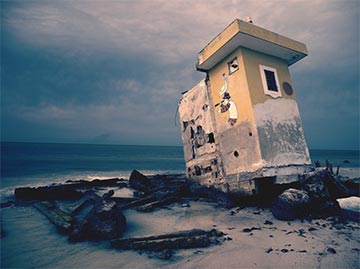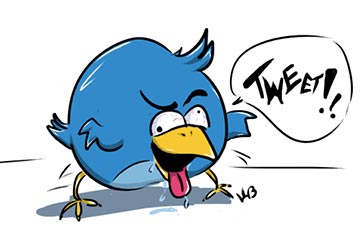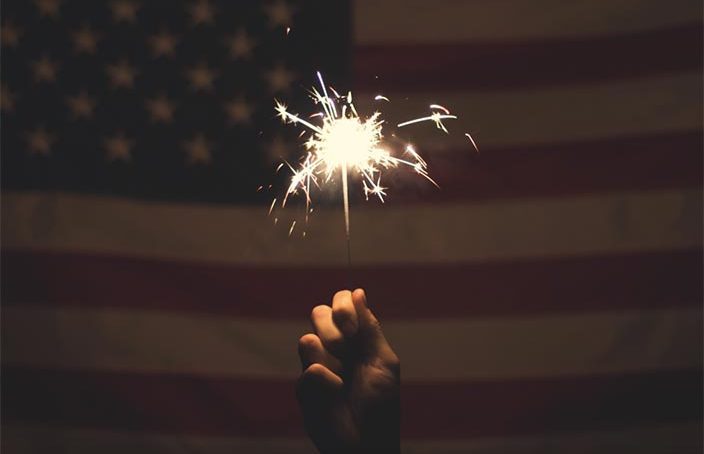Top 2 Unexplored Free Speech Issues in a Changing America
Americans have lost sight of one very important fact in recent years: their country is one of the youngest in the Western world. And like a teenager trying to establish an identity in the midst adolescence, the country experiences growing pains as it adapts to a new global environment.
America in 2016 is undergoing a transformation. 9/11, the War on Terror, the Arab Spring, the 2008 financial crisis, climate change, the Black Lives Matter movement, Brexit and the rise of Donald Trump – the aggregate of these issues has drastically changed the country in the past 15 years, and America is struggling to hold true to its core values while addressing unprecedented challenges.
America is built on complete, uninhibited Freedom of Speech. But recent events prove this is one of many definitions that will be redefined in the coming decades as a new generation takes the reigns of a nation rocking on its heels, praying for stability. In order to reaffirm America’s values, Freedom of Speech will have to figure out where it stands in relation to two yet unexplored modern issues: climate change denial and media demonization.
Climate Change

How much further can Freedom of Speech take climate change deniers?
Companies around the world, but mostly in the energy sector, are spending billions funding climate change denial. Greenpeace reports that the infamous Koch brothers have spent at least $88 million on climate change denial since 19972. In another prolific discovery, documents were leaked proving Willie Soon, a researcher at the Harvard-Smithsonian Centre for Astrophysics, received over $1 million in donations from energy companies to skew his data in defense of climate change denial3.
Activists have their suspicions that climate change deniers in Congress are in the pockets of the energy sector as well, and they cite partnerships like the one between the American Petroleum Institute (API) and the Republican National Convention as evidence of the link. The Intercept reports that API hosted cocktail hours at the RNC where one denier took the stand after another4.
Climate change activists, supported by numerous green organizations and politicians like Bernie Sanders, Jill Stein and Hillary Clinton, have asked the Justice Department to investigate corporate fraud in regards to fossil fuel companies that “mislead shareholders on the scientific reality of climate change.” Comparisons are drawn with the lawsuit brought against big tobacco in United States vs. Phillip Morris (1999). The case argued that big tobacco had been defrauding Americans on the negative health effects of smoking.
In big tobacco’s defense they cited the First Amendment as protection to say what they wanted about the realities of smoking. But the US Court of Appeals ruled that Freedom of Speech does not include snubbing science.
As the data becomes more and more concrete, America will have to decide whether climate change denial is protected as Free Speech or whether its denial is a threat to public health. As of yet, no definitive resolution has been made.
Media Demonization
America prides itself on being the world’s bastion of Free Speech, a place where anyone can say anything without fear of professional or social reprisal. But with the advent of modern information technologies like smartphones and social media, outspoken minds are learning they must choose their words wisely.
In a January 2015 article written for TIME, Charlotte Alter drew a profound comparison between the massacre of Charlie Hebdo and other modern assaults on Free Speech saying while the former involved violence, all stem from the same idea – “you said something that offends me, so I will destroy you5.”

At times, Twitter has been known to put the muzzle on Free Speech.
In his essay “How Outrage Changed My Life,” former New York Times Magazine contributor Andrew Goldman details the series of events that cost him his career after tweeting a sexist remark about author Jennifer Weiner. The tweet was a joke, he says, and was never published with the intention of misogyny6. He was fired from the magazine.
In another well-known example, communications director Jennifer Sacco of InterActiveCorp had her life flipped upside down during an 11-hour flight from London to Capetown. When she landed, her Twitter feed had become something akin to death row. Taken out of context, her seemingly racist tweet had become the #1 trending topic of that day. She was subsequently fired by her company.
Social media is modern journalism, but unlike the time-tested journalism of the past, today’s atmosphere is one in which the slightest debacle could cost a career – and a life. Whereas the journalists of old reported impartially on factual events, the journalists of new are forced to be creatures of social media, offering not just hard news but also their own take on the event. Throwing personality into the mix has the potential for a toxic result as was the case with both Goldman and Sacco.
Social media has transformed the way the public receives its news, but it has also transformed the very foundation of Free Speech. For fear of reprisal, words and ideas that once would have been spoken are now coerced into silence. Anything deemed sexist, racist, graphic or obscene is condemned immediately by thousands, even millions of voices online. There is no room for error, and no room for opinion. Can Freedom of Speech survive in such a society?
—
In most of the world, climate change is accepted as a scientific reality. Therefore its denial is rejected not based in opinion but based in fact. How far are America’s deniers willing to go in citing Freedom of Speech as protection for their claims? Social media was created with the intention of facilitating Freedom of Speech, but the examples of Goldman and Sacco prove that it often does the opposite. Can Freedom of Speech survive in the Age of Technology? America will have to come to grips with both of these issues if it wants to keep pace with the slick gears of global change.
Footnotes
1 http://climate.nasa.gov/scientific-consensus/
2 http://www.greenpeace.org/usa/global-warming/climate-deniers/koch-industries/
3 https://www.theguardian.com/environment/2015/feb/21/climate-change-denier-willie-soon-funded-energy-industry
4 https://theintercept.com/2016/07/22/oil-lobby-paid-washington-post-and-atlantic-to-host-climate-change-deniers-at-rnc/
5 http://time.com/3658223/we-have-a-free-speech-problem-in-america-too/
6 http://publiceditor.blogs.nytimes.com/2012/10/10/a-twitter-outburst-and-another-chance-for-andrew-goldman/

